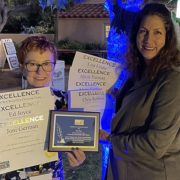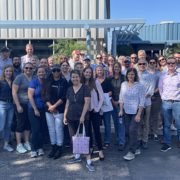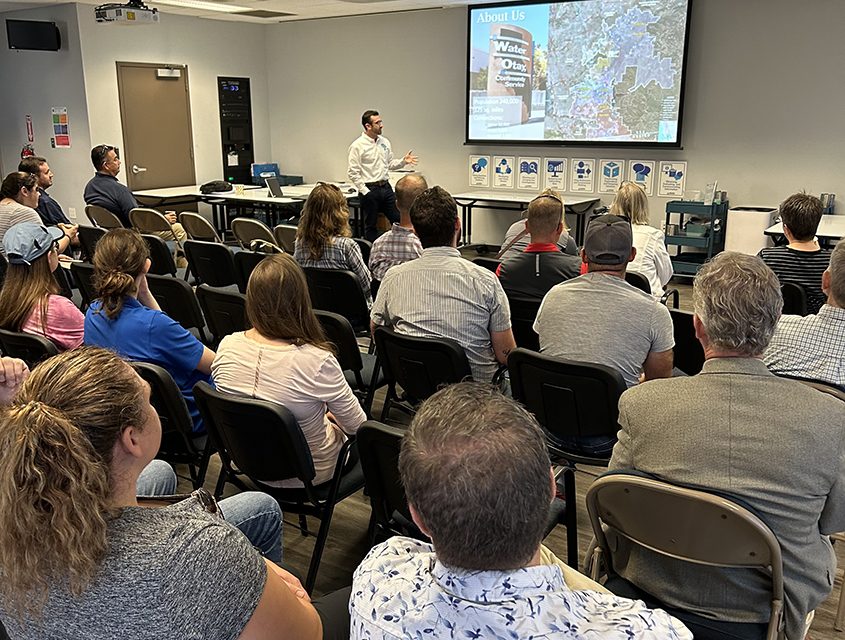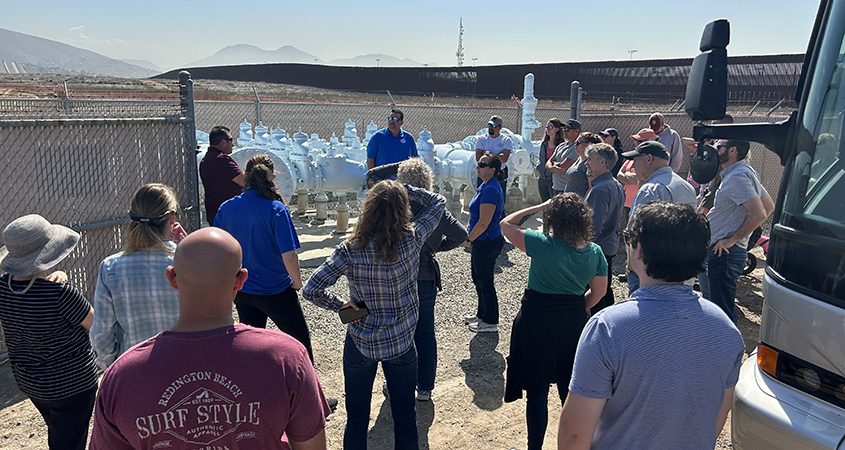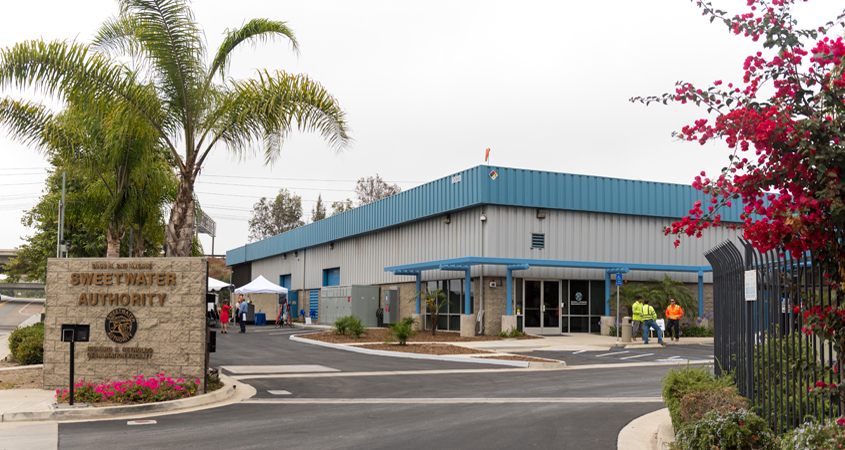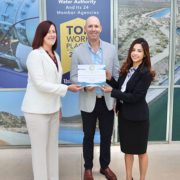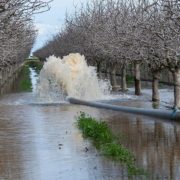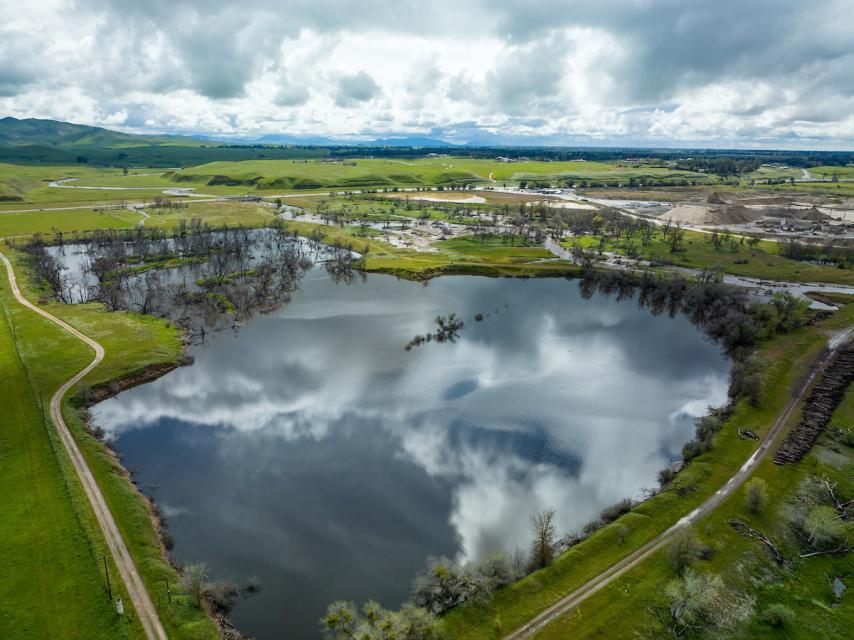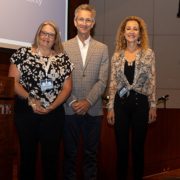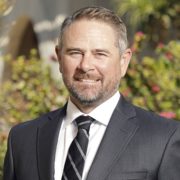Water News Network Best Public Service Website for Sixth Year at San Diego Press Club Awards
For the sixth consecutive year, the San Diego County Water Authority’s Water News Network website was recognized as the Best Public Service/Consumer Advocacy Website. The Water News Network was awarded for its public outreach and education at the San Diego Press Club’s 50th annual Excellence in Journalism Awards.
Among the largest annual competitions in the United States, San Diego’s finest reporters, photographers, writers, artists, and communicators were honored with the region’s top awards.
The Water News Network was awarded first place as the Best Public Service or Consumer Advocacy Website. The WNN has won the award every year since the website launched in mid-2018.
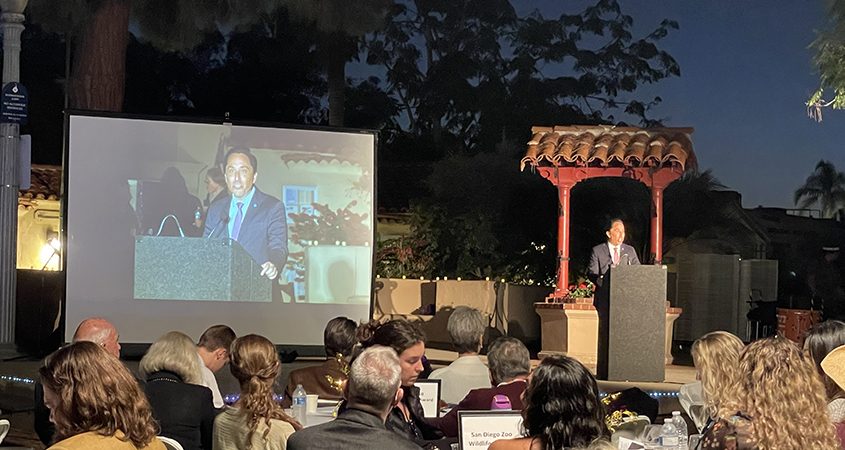
San Diego Mayor Todd Gloria congratulated winners at the San Diego Press Club Journalism Awards. Photo: San Diego County Water Authority
The award for best public service website is one of five awards the WNN received during a ceremony October 3 at Balboa Park. At the event, San Diego Mayor Todd Gloria recognized the contributions of the San Diego journalism community and the San Diego Press Club over its 50-year history.
Awards for reporting and video production
Water Authority Senior Public Affairs Representative Ed Joyce and former public affairs department intern Noah Harrel received second place for original reporting in the Online and Daily Newspapers: Military category for “Marine Corps Veteran Shawntrel McCoy Finds Perfect Fit in the SkillBridge Program.”
Writer Gayle Falkenthal received third place in the Online and Daily Newspapers: Public Service/Consumer Advocacy category for “Special Water Rates Program Reduces Costs for San Diego County Growers.”
The WNN team took home a third-place award in the PR, PIO, and Trade Publications Video category, for its Landscape Optimization Program video series.
Water Authority and Vallecitos Water District team honored
A joint entry from the Water Authority and the Vallecitos Water District public affairs team of Chris Robbins, Lisa Urabe, and Alicia Yerman won First Place in the Television/Online Video, Community Service/Public Affairs Reporting category for its Landscape Optimization Program video series, published in the Water News Network and on the Vallecitos Water District YouTube channel.
WNN water news
In its sixth year of operation, the Water News Network is viewed as a reliable source of factual information upholding the standards of journalism to benefit the Water Authority, its 24 member agencies, its stakeholders, and the residents of San Diego County.
The San Diego Press Club honors the region’s best communicators in media each year at the Excellence in Journalism Awards.
Water News Network 2023 San Diego Press Club awards:
Websites, Public Service or Consumer Advocacy Site: First Place, Water News Network
Online/Daily Newspapers, Military: Second Place, Marine Corps Veteran Shawntrel McCoy Finds Perfect Fit in the SkillBridge Program, Ed Joyce and Noah Harrel
Online/Daily Newspapers, Public Service/Consumer Advocacy: Third Place, Special Water Rates Program Reduces Costs for San Diego County Growers, Gayle Falkenthal
PR, PIO, and Trade Publications, Video: Third Place, Landscape Optimization Program Video Series, Water News Network Team
(Editor’s note: The Vallecitos Water District is one of the San Diego County Water Authority’s 24 member agencies that deliver water across the metropolitan San Diego region.)

